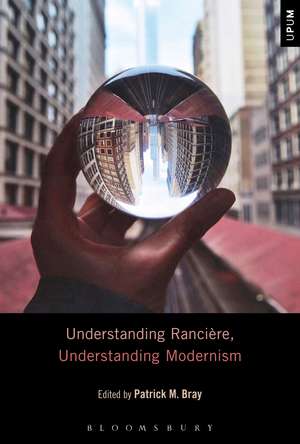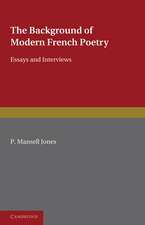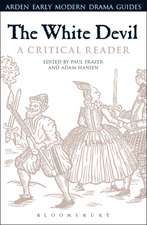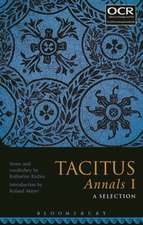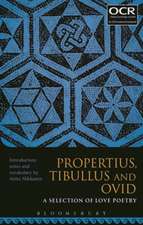Understanding Rancière, Understanding Modernism: Understanding Philosophy, Understanding Modernism
Editat de Dr. Patrick M. Brayen Limba Engleză Paperback – 19 sep 2018
| Toate formatele și edițiile | Preț | Express |
|---|---|---|
| Paperback (1) | 238.84 lei 43-57 zile | |
| Bloomsbury Publishing – 19 sep 2018 | 238.84 lei 43-57 zile | |
| Hardback (1) | 833.37 lei 43-57 zile | |
| Bloomsbury Publishing – 22 mar 2017 | 833.37 lei 43-57 zile |
Din seria Understanding Philosophy, Understanding Modernism
- 39%
 Preț: 498.72 lei
Preț: 498.72 lei - 23%
 Preț: 192.82 lei
Preț: 192.82 lei - 30%
 Preț: 570.60 lei
Preț: 570.60 lei - 22%
 Preț: 226.51 lei
Preț: 226.51 lei - 22%
 Preț: 259.79 lei
Preț: 259.79 lei - 13%
 Preț: 238.22 lei
Preț: 238.22 lei - 22%
 Preț: 239.21 lei
Preț: 239.21 lei - 13%
 Preț: 258.33 lei
Preț: 258.33 lei - 22%
 Preț: 238.01 lei
Preț: 238.01 lei - 22%
 Preț: 233.08 lei
Preț: 233.08 lei - 22%
 Preț: 226.51 lei
Preț: 226.51 lei - 22%
 Preț: 226.14 lei
Preț: 226.14 lei - 23%
 Preț: 198.93 lei
Preț: 198.93 lei - 23%
 Preț: 197.86 lei
Preț: 197.86 lei - 23%
 Preț: 194.33 lei
Preț: 194.33 lei - 23%
 Preț: 192.64 lei
Preț: 192.64 lei -
 Preț: 194.33 lei
Preț: 194.33 lei - 23%
 Preț: 191.75 lei
Preț: 191.75 lei - 30%
 Preț: 570.34 lei
Preț: 570.34 lei - 30%
 Preț: 539.73 lei
Preț: 539.73 lei
Preț: 238.84 lei
Preț vechi: 273.35 lei
-13% Nou
Puncte Express: 358
Preț estimativ în valută:
45.70€ • 47.84$ • 37.82£
45.70€ • 47.84$ • 37.82£
Carte tipărită la comandă
Livrare economică 07-21 aprilie
Preluare comenzi: 021 569.72.76
Specificații
ISBN-13: 9781501345630
ISBN-10: 150134563X
Pagini: 312
Ilustrații: 6 bw illus
Dimensiuni: 152 x 229 x 22 mm
Greutate: 0.42 kg
Ediția:NIPPOD
Editura: Bloomsbury Publishing
Colecția Bloomsbury Academic
Seria Understanding Philosophy, Understanding Modernism
Locul publicării:New York, United States
ISBN-10: 150134563X
Pagini: 312
Ilustrații: 6 bw illus
Dimensiuni: 152 x 229 x 22 mm
Greutate: 0.42 kg
Ediția:NIPPOD
Editura: Bloomsbury Publishing
Colecția Bloomsbury Academic
Seria Understanding Philosophy, Understanding Modernism
Locul publicării:New York, United States
Caracteristici
Comprehensive exploration of Ranciere's influence on the literature and study of modernism
Notă biografică
Patrick M. Bray is Associate Professor of French at the Ohio State University, USA. He is the author of The Novel Map: Space and Subjectivity in Nineteenth-Century French Fiction (2013) and co-editor of Building the Louvre: Architectures of Politics and Art (2014).
Cuprins
Notes on ContributorsSeries PrefaceList of AbbreviationsIntroductionPatrick M. Bray, Ohio State University, USAPart I - Conceptualizing Rancière 1. The Hatred of Democracy and "The Democratic Torrent": Rancière's MicropoliticsEmily Apter, New York University, USA2. Rancière's Nineteenth Century: Equality and Recognition in Nights of LaborBettina Lerner, City College CUNY, USA3. The Ignorant Schoolmaster: Intellectual Emancipation in Circular FormLeon Sachs, University of Kentucky, USA4. Literature as Rancièrian Film FableMargaret C. Flinn, Ohio State University, USA5. The Emancipated Spectator and ModernismCary Hollinshead-Strick, American University of Paris, France6. Mute Speech: The Silence of Literature in Rancière's Aesthetic ParadigmGiuseppina Mecchia, University of Pittsburgh, USA7. Le Fil Perdu: The Music of the IndistinctDavid F. Bell, Duke University, USAPart II - Rancière and Aesthetics8. A Method of Equality: Rancière, Jokes, and their Relation to They Drive by NightTom Conley, Harvard University, USA9. Feminist Art: Disrupting and Consolidating the Police OrderTina Chanter, Kingston University London, UK10. Rancière and Proust: Two TemptationsSuzanne Guerlac, University of California, Berkeley, USA11. The Conception of the Will in Rancière's Aesthetic Regime of the Arts: Pathos and Reverie in Stendhal, Ibsen and FreudAlison Ross, Monash University, Australia12. Dreaming Bourdieu Away: Rancière and the Reinvented HabitusMarina Van Zuylen, Bard College, USA13. Rethinking the Aesthetics/Politics Nexus in Latin AmericaSilvia L. López, Carleton College, USAPart III - Glossary of Key TermsDistribution of the SensibleDaniel Brant, University of Illinois at Urbana-ChampaignFableAudrey Évrard, Fordham University, USAIntellectual EqualityZakir Paul, University of Chicago, USAMute SpeechAlison James, University of Chicago, USARegimes of ArtRobert St. Clair, Dartmouth College, USAPart IV - Interview with Jacques Rancière'Understanding Modernism, Reconfiguring Disciplinarity,' interview with Rancièretranslated by Patrick M. Bray, Ohio State University, USAIndex
Recenzii
Patrick Bray's collection Understanding Rancière, Understanding Modernism brings together some of the foremost scholars engaging with the work of Jacques Rancière today. What is perhaps most notable about it, however, is that reading it is akin to finding oneself in the 'unpredictable' library that Rancière laments the loss of in the volume's concluding interview. If the old Bibliothèque Nationale's 'heterogeneous books.grouped together side by side,' enabled Rancière to write as he does, crossing disciplinary borders and thinking around singular problems in the mode of discovery rather than mastery, the volume's approach to Rancière operates on a similar principal (p. 277). Allowing the reader unfamiliar with Rancière's work to find footholds in the definitions of key concepts found in the volume's third section, the collection also offers unexpected new directions.
Bray's collection - and Bloomsbury's series, generally - provides a wealth of intriguing new theoretical possibilities.
In addition to highlighting the range and influence of Rancière's work, these essays confirm the rigour, richness, and robust critical independence of the responses this work is now inspiring. As a result, this collection not only offers a compelling account of current work around Rancière: it relaunches this work anew.
Deviating wisely down the byways of Rancière's writing by attending closely to the textual and conceptual singularity of a significant constellation of hitherto less extensively debated works, this collection does indeed provide invaluable new understanding of his unfailingly productive struggle with modernism. The volume is suffused with that acutely responsive sensitivity to the shifting displacements of his unclassifiable project which Rancière speaks of in the substantial and wide-ranging closing interview.
A cornucopia of some of the best critical minds working in French theory today. It contains a challenging yet highly accessible collection of essays that illuminate the importance of one of the most important theorists of today. Patrick M. Bray has done a masterful job in editing a collection that will have a long shelf life.
Bray's collection - and Bloomsbury's series, generally - provides a wealth of intriguing new theoretical possibilities.
In addition to highlighting the range and influence of Rancière's work, these essays confirm the rigour, richness, and robust critical independence of the responses this work is now inspiring. As a result, this collection not only offers a compelling account of current work around Rancière: it relaunches this work anew.
Deviating wisely down the byways of Rancière's writing by attending closely to the textual and conceptual singularity of a significant constellation of hitherto less extensively debated works, this collection does indeed provide invaluable new understanding of his unfailingly productive struggle with modernism. The volume is suffused with that acutely responsive sensitivity to the shifting displacements of his unclassifiable project which Rancière speaks of in the substantial and wide-ranging closing interview.
A cornucopia of some of the best critical minds working in French theory today. It contains a challenging yet highly accessible collection of essays that illuminate the importance of one of the most important theorists of today. Patrick M. Bray has done a masterful job in editing a collection that will have a long shelf life.
